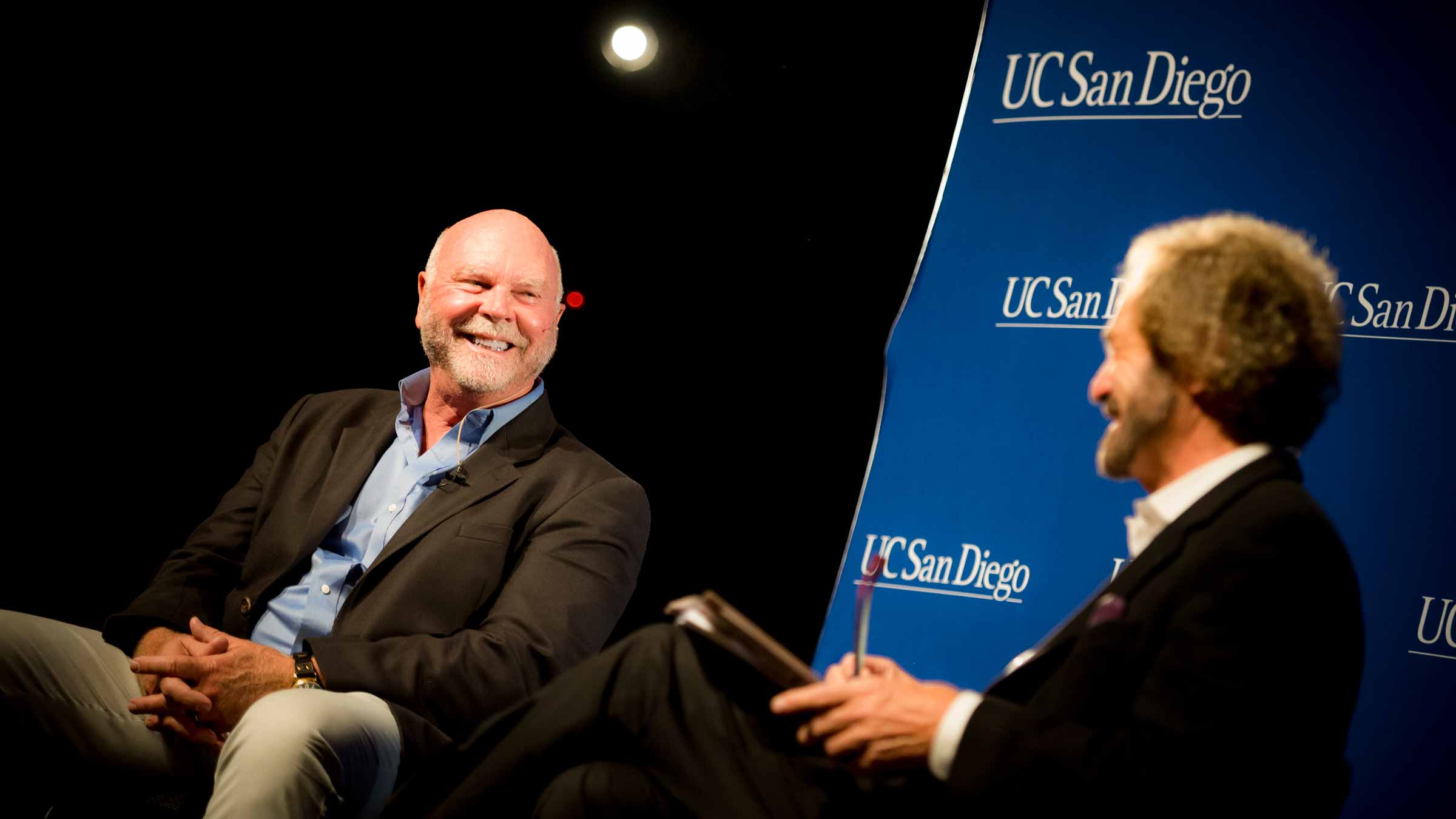
By:
- John Freeman
Published Date
By:
- John Freeman
Share This:
J. Craig Venter Discusses New Book on Dawn of Digital Life

Photo by Erik Jepsen/UC San Diego Publications
If J. Craig Venter has a single mantra, among so many that define his knack for discovery, it would be that human beings are essentially “DNA-driven software machines.”
As such, we are each merely a collective mass of genomic data which, when unraveled, holds the promise of answering the age-old question of “What is life?”
“The reality is the reality,” said Venter, who spoke recently at UC San Diego. “Every life form on this planet is DNA-driven software…Some of us make wonderful music, some make wonderful science. Some write books. There are many endeavors that help define humanity. I don’t feel diminished at all knowing that I’m made of DNA-driven software.”
Such assertions formed the backdrop for Venter’s recent on-campus appearance at Price Center East, before an admiring, curious gathering that filled the 300-seat hall to capacity.
Moderator Roger Bingham, director of The Science Network and a UC San Diego neuroscientist, gently tapped into Venter’s surpassing intellect in the hour-long session that was more relaxed conversation than probing interview. Turning to Venter at the start, he said: “We don’t know where it’s going to go, but then, that’s been your life, hasn’t it?”
Venter was by turns humorous, wry and reflective. With a new book out, his second, titled “Life at the Speed of Light: From the Double Helix to the Dawn of Digital Life,” he’s been making the national media rounds, so it was only natural that he should return to UC San Diego.
“The book is about the history of the last 70 years of microbiology, DNA sequencing and how we’ve gone from being able to first understand what the genetic code even is, to being able to read it and put it in the computer,” Venter explained. “I call that digitizing biology, so it’s converting the A’s, C’s, G’s and T’s of our chemical code into the 1s and 0s in the computer. But it is also about the second part as well, which is we start then with the 1s and 0s and go back and recapitulate the DNA code chemically. All life as we know it can be sent as digital code through the Internet.”
In looking back over his life, Venter admitted he is probably an “adrenaline junkie” who would have perhaps pursued a career as a racecar driver if things had gone differently. But he said he feels that same need for speed in approaching science.
“It would be a whole lot better for everybody if science went a whole lot faster,” he said. “I argue that we should have 10 times the pace of discovery.”
Share This:
You May Also Like
Stay in the Know
Keep up with all the latest from UC San Diego. Subscribe to the newsletter today.


